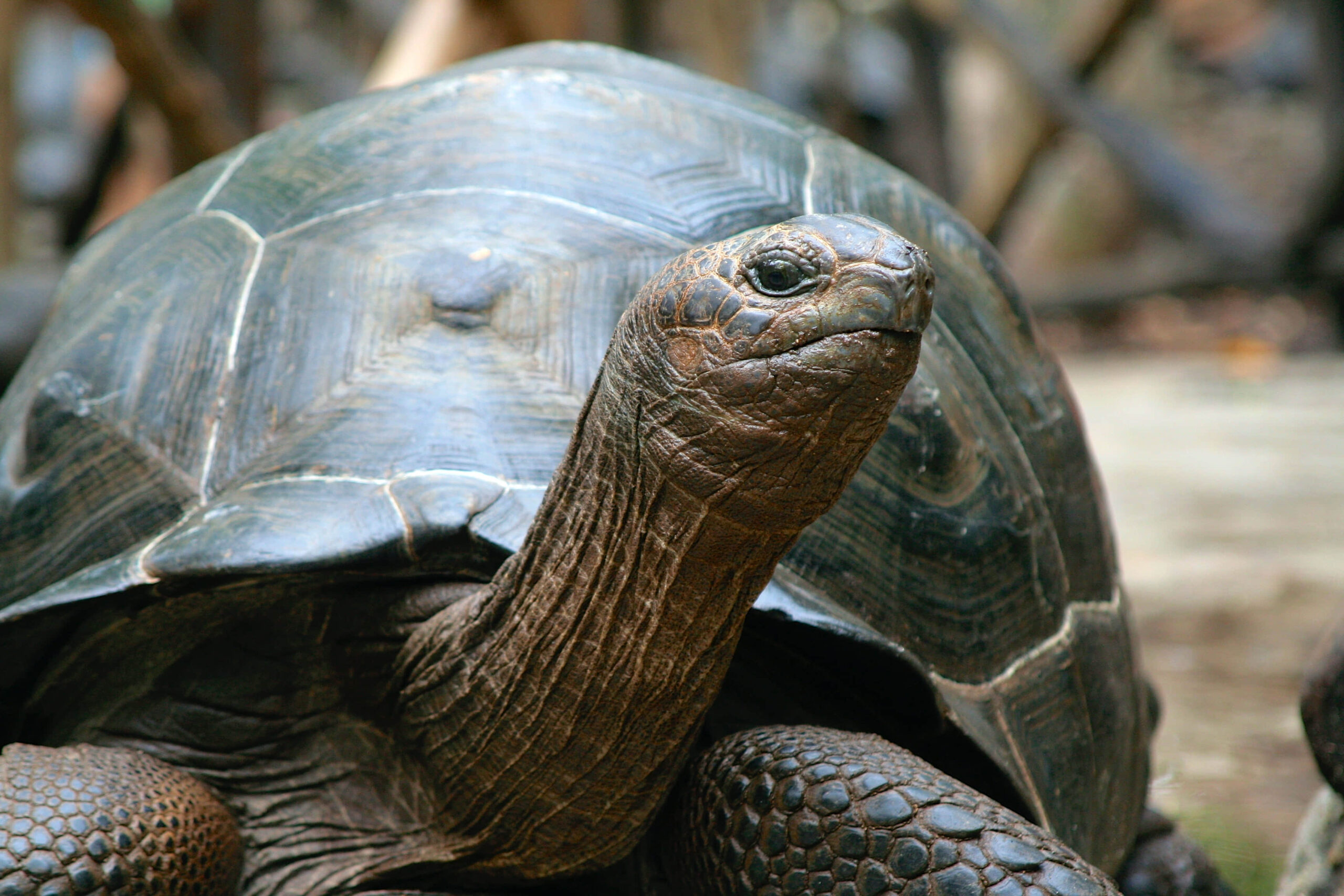Turtles and tortoises are among the longest-living reptiles, as you may have heard. On average, sea turtles live up to 80 years. Another type of huge turtle—the largest of all land turtles—lives for at least a century, and some have been known to survive for over 200 years. Pet box turtles can live for 30 to 40 years if they don’t have any ailments.

The World’s Oldest Tortoise
Jonathan the giant tortoise has been declared the “world’s oldest animal on land” by the Guinness Book of World Records. Located on the island of St. Helena in the South Atlantic, Jonathan is thought to be 189 years old. Born in 1832, he has seen the reign of Queen Victoria, the sinking of the Titanic, two world wars, the first moon landing, the fall of the Berlin Wall, and countless other notable global events. Bearing in mind the oldest human to have lived reached 122, Jonathan has long outlived any human in history.
Turtle Lifespan
While there aren’t any known turtles who have lived as long as Jonathan, there are known turtles who have a similarly impressive lifespan. Many sea turtles have been found to live between 50 to 100 years. Box turtles, in particular, can live for more than a century. A problem that researchers often find when looking into different turtle species’ life spans is that they simply don’t live long enough themselves to complete their research.

The Evolutionary Reasons for Turtle Longevity
Well, what is the reason for turtles living so much longer than the majority of other creatures? Well, if we take an evolutionary perspective, the answer is pretty clear. If animals’ main purpose is to reproduce, the majority of creatures can mate and bring offspring into the world within a relatively short period. Turtles, however, face a number of problems in regard to this. Their eggs are something that animals such as snakes and raccoons like to eat. In order to pass on their genes, turtles have to not only breed frequently but also live a long time in order to leave a significant number of offspring behind.
The Biological Reasons for Turtle Longevity
Of course, it would be ideal for many animals to live longer in order to maximize their reproductive potential. But what is it about turtles’ biological makeup that allows them to live for such long periods of time? Well, the biological mechanism behind turtles’ longevity is a little more complicated to explain. However, scientific and biological intrigue has resulted in a number of studies into the subject and researchers have found that one insight into turtles’ longevity lies in their telomeres. These are essentially structures composed of noncoding strands of DNA that cap the ends of chromosomes.
Turtles’ telomeres can help to protect the chromosomes as cells divide. In the majority of animals, telomeres get shorter or degrade over time, which means they can no longer protect their chromosomes as well, which results in issues with DNA replication. Errors in DNA replication can lead to issues such as tumors and cell death. Turtles telomeres tend to show much lower rates of telomere shortening to other animals. This results in their bodies being more resistant to certain kinds of damage that can arise from DNA-replication errors.

Aside from this, scientists have considered that various other factors could also contribute to turtles’ long lives. While many of these theories haven’t been confirmed, they are to be looked into. In a paper posted July 8 to the preprint database bioRxiv, a team of scientists looking into a number of mechanisms and substances that lead to cell damage and death took samples from several turtle species. They also took samples from Jonathan the giant tortoise. While this paper has not yet been peer-reviewed, it did declare that giant tortoises and a few other turtle species seem to be able to protect themselves from the long-term effects of cell damage.
Their bodies appear to quickly kill off damaged cells using a process referred to as programmed cell death or “apoptosis”. This was determined by inducing oxidative stress, using free radicals, in the turtles’ shells, which is a form of stress that naturally occurs in many living cells. Free radicals are highly reactive molecules that naturally form as part of our metabolic process and damage cells. When this occurred in turtles’ shells, the cells reacted quickly, undergoing apoptosis and removing the cell, preventing the turtles’ bodies from developing conditions such as cancer.

Another study found that some turtles seemed particularly resistant to DNA replication issues. The cells in one species of turtle found that they did not respond to a treatment that was intended to disrupt the ligase enzyme, which is essential in DNA replication.
As you can see, while there isn’t any hard evidence or solid answers as to why turtles do live so long, there are plenty of theories, with some supported by scientific studies.

